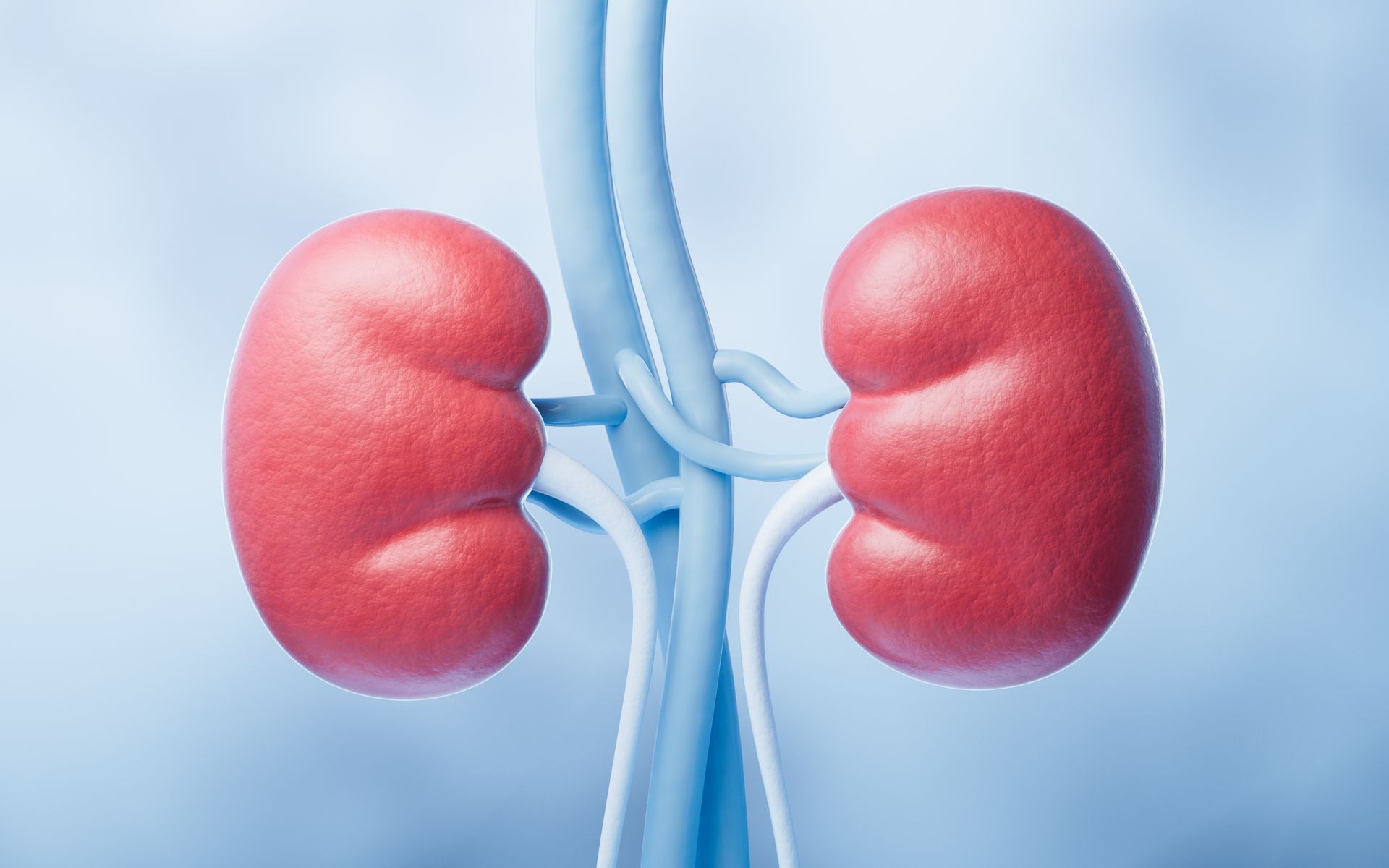How can we end the social stigma of obesity?
We can't fix obesity without fixing the stigma associated with the disease. Discover what needs to change in our culture and healthcare.

Living as a person with obesity can mean you're often the butt of jokes or the subject of headlines. It can make clinic waiting rooms and everyday conversations feel like a threat. And the problem runs deeper than hurt feelings.
Weight stigma can harm mental and physical health, keep people away from lifesaving healthcare and make behaviour change harder to sustain. If we want better health, we need better culture. That starts with understanding what obesity is and what it is not.
Obesity is a chronic disease on the rise – a disease experienced by one in eight people across the globe in 2022. The World Health Organization defines it as "abnormal or excessive fat accumulation that may impair health". It's influenced by our biology and the world we live in.
Why, then, is obesity so often characterised as a failure of willpower?
When our society places all the responsibility on individuals, stigma grows, and outcomes worsen. But the good news is that stigma is not inevitable. There are proven, practical ways to reduce it in healthcare, workplaces, media and everyday life.
Let's explore what they are and how they could work.
The current system isn't working: what changes need to be made?
Shift the story from blame to biology and the food environment
Genes, hormones and access to healthcare and education strongly affect our weight. So do our food environments – the impact of our surroundings on what we eat.
Negative influences on our food environments include the promotion of fast food and the phenomenon of food deserts. These are urban and rural low-income areas lacking adequate access to healthy and affordable food – especially fresh fruit and vegetables.
When we educate people on these factors, they tend not to have such negative attitudes towards people living with obesity. They also tend to become more supportive of helpful policies.
Replace shaming with support
Stigma or 'fat shaming' does not motivate sustainable weight loss. In fact, it can do the opposite. It raises stress, worsens eating patterns and can make people avoid getting the healthcare they need. A supportive approach is much more effective in improving engagement and health outcomes.

Treat the person, not the number
BMI is
increasingly considered an outdated metric that doesn't paint a full picture of a person's health. However, it's used in healthcare as a quick and easy tool to measure body fat.
Healthcare providers should focus on goals that matter to the individual, including medication options, nutrition, sleep, physical activity and mental well-being.
Words matter: everyday language that reduces stigma
People want to be treated with dignity and respect. Small changes in language and how we talk to each other can make a real difference:
- Use person-first language: say 'person living with obesity', not 'obese person'.
- Avoid moral labels: steer clear of words like 'good', 'bad', 'cheating', or 'failing' when talking about food or habits.
- Focus on health, not appearance: try 'feeling stronger' or 'improving energy levels' instead of comments about size or shape.
- Never assume someone's goals: not every person living with obesity is trying to lose weight. Ask before offering advice or opinions.
- Avoid blame or judgment: obesity is a complex medical condition, not a failure of willpower.
- Be mindful of tone online:
what might seem like casual humour can reinforce shame or stereotypes.
Healthcare settings: where change can start today
Healthcare can lead the way. Yet many people living with obesity report feeling judged in clinics, and some delay or avoid care because of it.
Here are some things we can do to help tackle this.
Train teams on stigma and bias
Educating healthcare professionals on the effect biology and environment can have on obesity, combined with skills practice and patient advocacy, can help reduce biased attitudes.
Make clinics welcoming
Healthcare settings should consider their obese patients by offering things like sturdy seating and appropriately sized cuffs and equipment. They should also make sure to weigh people in a dignified manner. Small practical steps like these signal respect.
Use shared decision-making
Weight loss goals should be decided on together, and a full toolbox of support should be offered. That may include nutrition guidance, activity support, sleep strategies, psychological care and evidence-based medicines like Wegovy and Mounjaro, where clinically appropriate.

Workplaces, schools and media: the important role culture plays
Workplaces
Workplaces should consider adopting anti-discrimination policies that include weight and provide inclusive uniforms and equipment. If offices do have well-being programmes, they should focus on health behaviours rather than weigh-ins and leaderboards.
Schools and universities
Schools can play an important role in addressing obesity stigma by helping teach healthy habits and attitudes from a young age.
That includes teaching media literacy, so young people can think critically about the content they view. And teaching nutrition and exercise as life skills, not weapons to be wield against those perceived as not meetings society's standards.
News and entertainment
The media is perhaps our most powerful tool for shaping public attitudes.¹ However, it's all too common to see weight paraded as a punchline on comedy shows or preached as a moral failing on lifestyle programmes.
Instead, media professionals should:
- Choose images that avoid stereotypes
- Cover obesity as a health topic with social and environmental drivers, not a personal failing
- Invite people with lived experience of obesity to contribute
Policy that makes healthy living simpler
Individual education helps, but the environment we live in plays a much bigger role. People do best when healthy choices are available, affordable and normal.
For instance, policymakers could step in to provide safe, accessible walking and cycling routes that reduce our reliance on cars and public transport. Or implement policies that reduce the cost of fresh food, so preparing healthy, home-cooked meals is less of a financial burden.
Guidelines are starting to reflect this shift. In the UK, NICE recognises obesity as a chronic, relapsing condition that often requires long-term management, including access to lifestyle interventions, medication and bariatric surgery.
We still have a long way to go. But by tackling obesity stigma from all sides, we can continue to push the needle of public opinion in the right direction.
SemaPen is a UK-based healthcare provider specialising in clinically proven treatments for obesity. The company is part of Phoenix Health – the only bariatric surgery provider trusted by the NHS to provide treatment.
Sources
1. Westbury, S. et al. (2023) "Obesity Stigma: Causes, Consequences, and Potential Solutions"
Current Obesity Reports, 12(1)
https://doi.org/10.1007/s13679-023-00495-3
2. Tomiyama, A.J. et al. (2018) "How and why weight stigma drives the obesity 'epidemic' and harms health" BMC Medicine, 16(123) https://doi.org/10.1186/s12916-018-1116-5
3. World Health Organization (2025) Obesity and overweight. Retrieved from https://www.who.int/news-room/fact-sheets/detail/obesity-and-overweight
4. National Institute for Health and Care Excellence (2025) Overweight and obesity management. Retrieved from https://www.nice.org.uk/guidance/ng246
This article was reviewed and approved by Lujain Alhassan, Bariatric Nutritionist, on 31 October 2025.
- Average 15–21% weight loss
- Trusted programmes built by UK experts
- Personalised advice and support
- Smart weight loss app to track progress and learn positive habits
Your journey starts in the app
Unlock tailored support, weight tracking and more.
1
Download the free app
2
Take your digital consultation
3
Start your programme












